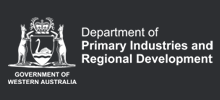DRAFT South Coast Offshore Crustacean Resource of Western Australia Harvest Strategy. Version 1.1.
Abstract
Harvest strategies for aquatic resources in Western Australia (WA) that are managed by the Department of Primary Industries and Regional Development (DPIRD, the Department) are formal documents that ensures decision-making processes are consistent with the principles of Ecologically Sustainable Development (ESD; Fletcher 2002) and Ecosystem Based Fisheries Management (EBFM; Fletcher et al. 2012). The objectives of ESD are reflected in the objects of the Fish Resources Management Act 1994 (FRMA) and the Aquatic Resources Management Act 2016 (ARMA), which is anticipated replace the FRMA once enacted. At this point, the Fish Resources Management Regulations 1995 (FRMR) is also anticipated to be replaced by ARMA regulations (Aquatic Resources Management Regulations). The South Coast Offshore Crustacean (SCOC) Harvest Strategy has been developed in line with the Department’s Harvest Strategy Policy for Aquatic Resources (Department of Fisheries 2015) and is consistent with relevant national harvest strategy policies and guidelines (e.g. Sloan et al. 2014; Department of Agriculture and Water Resources 2018a, b). It makes explicit the performance indicators, reference levels, and harvest control rules designed to achieve the specific long- and short-term management objectives for the resource, and the broader goals of ESD and EBFM. The publication of this harvest strategy is intended to make the decision-making considerations and processes for the management of specified aquatic resources publicly transparent and provide a basis for informed dialogue on management actions with resource users and other stakeholders (Department of Fisheries 2015). This strategy provides guidance for decision-makers, but do not derogate from or limit the exercise of discretion required for independent decision-making by the Minister for Fisheries, the Director General of DPIRD, or other delegated decision-makers in order to meet the objects of the FRMA or ARMA. Consistent with the Department’s Stakeholder Engagement Guideline (Department of Fisheries 2016), this harvest strategy has been subjected to formal stakeholder consultation with industry members and peak commercial and recreational fishing sector bodies, as well as public consultation processes.


